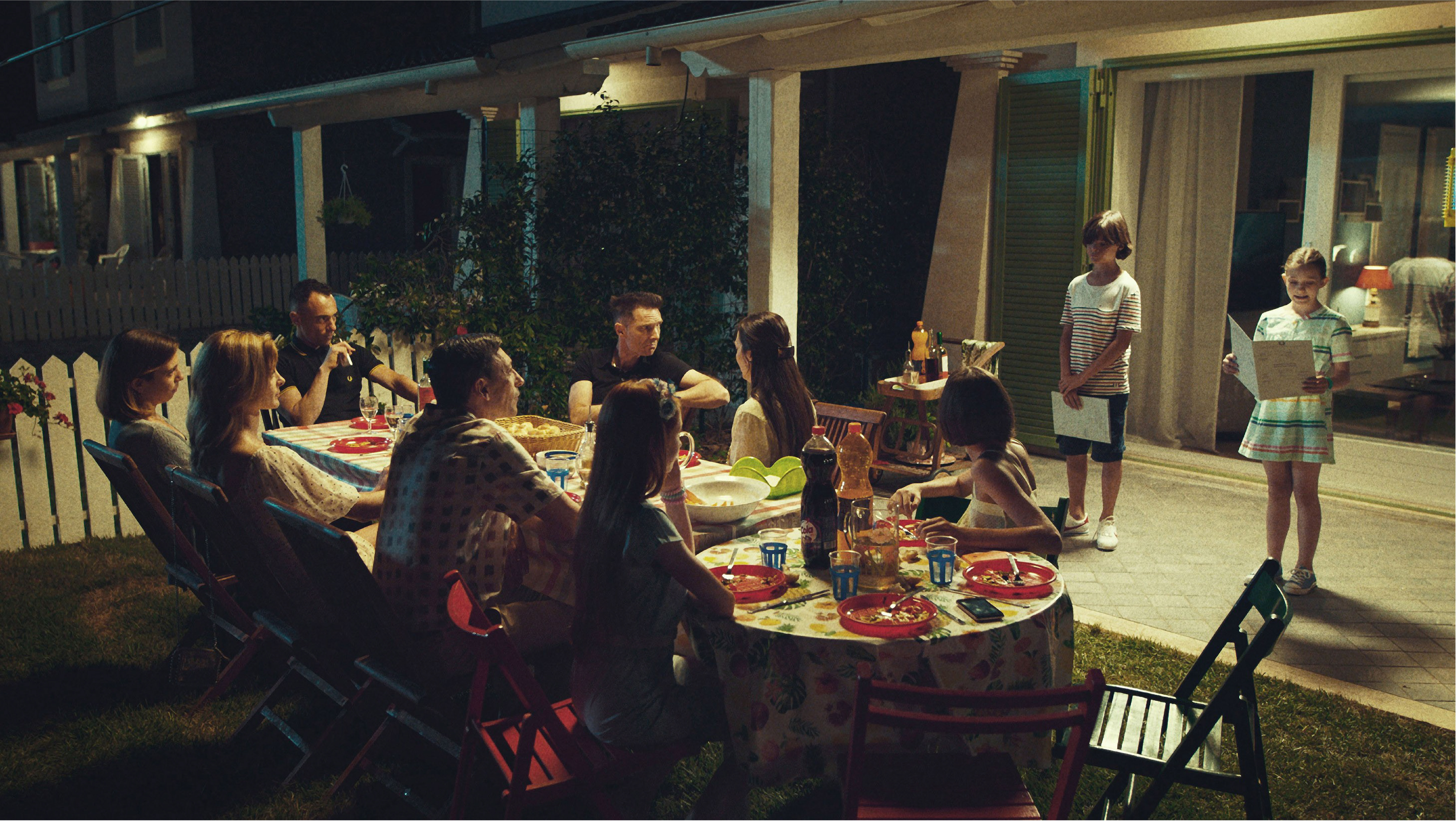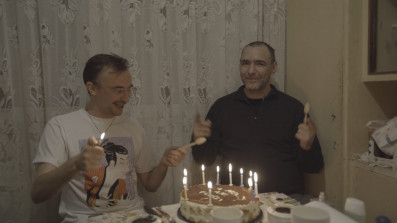
BERLINALE SPECIAL Day 6: "The Woman Who Ran", "Bad Tales" and "Never Rarely Sometimes Always" bring out the serious quality in Berlinale Competition
From Korea, through Italy up to the USA, Berlinale day 6 brings out the best of diverse world cinema
Three Competition entries of Berlinale day 6 finally woke up the spirit of the festival with all their goodness and quality. The day started with The Woman Who Ran, the latest anti-drama by Korean filmmaker Sang-soo Hong, proceeded with wild comedy-drama Bad Tales by Italian director brothers Damiano and Fabio D'Innocenzo. The day reached its peak with the latest splendid 35mm shot film Never Rarely Sometimes Alwaysby American filmmaker Eliza Hittman (Link for a separate review).
Hong Sang-soo is one of those film directors with whom it is hard to say if he is pure genius or just a casual filmmaker that everyone misreads and gives its work to much intention. Like the majority of his previous films, The Woman Who Ran is another slice of life/ observations anti-drama that contemplates the nature of love, relations, and attractions.
The film follows Gam-hee -starring always splendid and deeply dedicated actress Kim Min-Hee- meeting up with three long time friends while her husband is abroad. With each new meeting, Gam-hee repeats the same story about her marriage. Her husband thinks that people in love should always stick together, and this is the first time in five years of their marriage that they have been apart.
With that being said, the more protagonist Gam-hee repeats this statement, it is less believable and starts to seem that she is hinting at some hidden matters regarding her love life. But in a common way of Hong Sang-soo this never gets explored. Any action, angst or drama is removed and evaded in 77 minutes runtime for the sake of chatting between the women.
It is a film about pain stakes of love, that is for sure, and what film serves us are Gam-hee and her friends talking about their relationships and independence... First friend Young-soon -starring Young-hwa Seo- is divorced and enjoys her life on the outskirts of Seoul in an apartment with a gorgeous garden. Second friend Su-young - starring Seon-mi Song - tells a story about a one night stand that keeps stalking her around while she is trying to start a relationship with her upstairs neighbor. With a final, third friend Woo-jin - starring Sae-Byuk Kim- we are presented with a story of a mutual past lover of two women and something that is hidden away and never said back in a day (nor now in a present) about him.
Overall, Hong Sang-soo's fourth feature film in Berlinale Competition - first three being Night and Day, On the Beach at Night Alone and Grass - seems as the least developed one so far. With never truly taping into any of the moments that had dramatic potential and a few giggles and head scratches along the way sadly, this calming, minimalistic beautiful looking film appears like something the majority of viewers will forget as soon as their finished with watching it.
The Woman Who Ran ©Jenowonsa Film Co. Production
Bad Tales, the latest film by Damiano and Fabio D'Innocenzo, opens up with the unseen narrator claiming to have found a little girl's diary, that unexpectedly amazed him. But as the diary abruptly ends, he decided to complete the story. With this being said, we enter the small unnamed Italian town where the adults are undecidable and childlike while children are calmly making some seriously deep life desitions, whether they know it or not. Sex, pride, violence, innocence, kitsch, and morbidness altogether merge in this genuine dark comedy.
The film follows the stories of 3 preteens – two boys, Dennis and Germania and a girl named Viola– and a pregnant teen girl Vilma during the summer vacation that is about to change all of their dull smalltown lives. Dennis is spending his summer being forced to read out a loud school report card, his dad is proud of, swimming in a rubber backyard pool, trying to do „everything“ with his girlfriend while secretly admiring pregnant teen Vilma -that is waiting to give birth. Germania's summer is a bit slower and more „radical“, as he is spending the time only with his father, the boy has a chance to drive a car like a madman, and spread the measles to Vilma -that spent her summer swimming in Dennis's pool, getting head bugs, cutting off her hair and having a birthday party that was most enjoyable for the adults with their cheap sex phantasies. The boys are also on their secret school projects that are going to blow everybody's mind.
The film depicts a lot of offputting things, from smaller, more innocent awkward moments like two preteens trying to have sex, all the way up to sexualization of pregnant teen and bomb building. The moment that best describes the type of humor that D'Innocenzo brothers are using is the scene where naive youngster Denis offers a cookie to Vilma after what she takes out her breast and puts some milk on it.
The question is, does it serve any purpose? Or maybe it is just a simple gossip taken out of the wild imagination from a diary of an unknown preteen, without any deeper meaning? The answer to this question probably lies within the contradictory behaviors of children and adults. D'Innocenzo brothers never show the true problems parents are having, but from their emotional outbursts, nasty sexual comments and random night rides with children that one of the father doesn't want to explain, give enough context that these characters have troubles with their finances, libido as well as generally speaking being adult. As they oppose exploration driven preteens it becomes obvious that director duo had a rather interesting approach to giving a significantly relevant social commentary of 21st-century families.
With an impactful ending that showcases an ill-fated destiny of a Vilma, her boyfriend and their baby Sara - that had the role of crossing the bridge between the world of children and adults - directors give the final majestic blow in their pessimistic view on where the society is heading. It is a film that nobody with the right mind should see, but many will honestly enjoy being ashamed of it.















